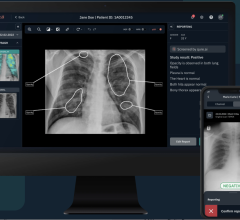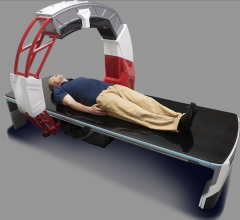December 27, 2011 – In a move to re-engineer the process of translating scientific discoveries into new drugs, diagnostics and devices, the National Institutes of Health (NIH) has established the National Center for Advancing Translational Sciences (NCATS). The action was made possible by Congress’ approval of a fiscal year 2012 spending bill and the president’s signing of the bill, which includes the establishment of NCATS with a budget of $575 million.
NCATS will serve as the nation’s hub for catalyzing innovations in translational science. Working closely with partners in the regulatory, academic, nonprofit and private sectors, NCATS will strive to identify and overcome hurdles that slow the development of effective treatments and cures.
“Congressional support for the National Center for Advancing Translational Sciences marks a major milestone in mobilizing the community effort required to revolutionize the science of translation,” said NIH Director Francis S. Collins, M.D., Ph.D. “Patients suffering from debilitating and life-threatening diseases do not have the luxury to wait the 13 years it currently takes to translate new scientific discoveries into treatments that could save or improve the quality of their lives. The entire community must work together to forge a new paradigm, and NCATS aims to catalyze this effort.”
A prime example of the type of innovative projects that will be led by NCATS is the new initiative between NIH, the Defense Advanced Research Projects Agency, and the U.S. Food and Drug Administration (FDA) to develop cutting-edge chip technology. This new technology will allow researchers to screen for safe and effective drugs far more swiftly and efficiently than current methods. A great deal of time and money can be saved testing drug safety and effectiveness much earlier in the process.
To meet the goals of NCATS, NIH is reorganizing a wide range of preclinical and clinical translational science capabilities within NIH into an integrated scientific enterprise with new leadership and a bold new agenda. While the effort to recruit an NCATS director continues, organizational changes and realignment of resources will move forward under the leadership of Acting Director Thomas R. Insel, M.D., and Acting Deputy Director Kathy Hudson, Ph.D. Insel is the director of the National Institutes of Mental Health and Hudson is the deputy director for science, outreach and policy at the National Institutes of Health.
The following programs will comprise NCATS:
- Bridging Interventional Development Gaps, which makes available critical resources needed for the development of new therapeutic agents
- Clinical and Translational Science Awards, which fund a national consortium of medical research institutions working together to improve the way clinical and translational research is conducted nationwide
- Cures Acceleration Network, which enables NCATS to fund research in new and innovative ways
- FDA-NIH Regulatory Science, which is an interagency partnership that aims to accelerate the development and use of better tools, standards and approaches for developing and evaluating diagnostic and therapeutic products
- Office of Rare Diseases Research, which coordinates and supports rare diseases research
- Components of the Molecular Libraries, which is an initiative that provides researchers with access to the large-scale screening capacity necessary to identify compounds that can be used as chemical probes to validate new therapeutic targets
- Therapeutics for Rare and Neglected Diseases, which is a program to encourage and speed the development of new drugs for rare and neglected diseases
The budget for NCATS is primarily a reallocation of funds from programs previously located in the NIH Office of the Director, National Human Genome Research Institute and National Center for Research Resources. NIH is committed to both basic and applied research and has maintained a relatively stable ratio of funding across these two areas of focus. The funding ratio will not be disturbed by the establishment of this new center.
The formation of NCATS has been a methodical process highlighted by the recommendation of the NIH Scientific Management Review Board in December 2010 to create a new center dedicated to advancing translational science. This recommendation was followed by a year of intensive feedback and expert insight from all sectors of translational science through advisory meetings and extensive public consultation.
For more information: www.nih.gov/about/director/ncats/index.htm


 August 09, 2024
August 09, 2024 








